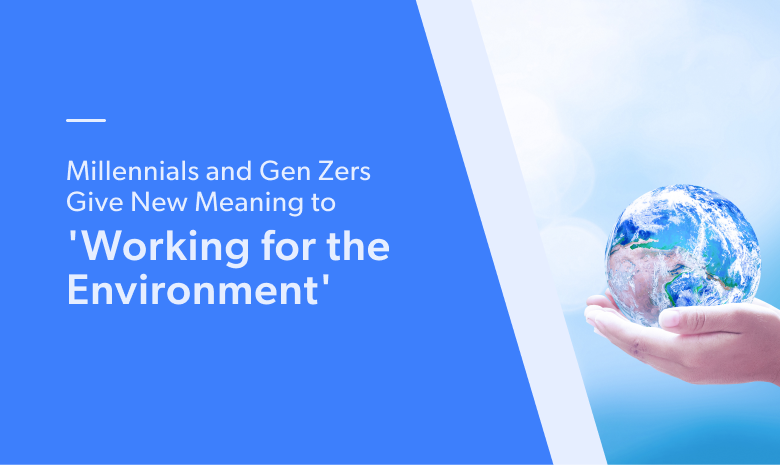The level of awareness for climate change especially among Gen Zers is driving their commitment to be part of the solution to the climate crisis rather than contributing to the problem. Sources show that a large portion of older Gen Zers is seeking environmental-related university degrees. What’s more, they are basing their career choices on their desire to make a positive environmental impact.
A shift in values’ embracing environmental awareness
There is a clear shift in values taking place when it comes to the workplace. Whereas older generations would be more likely to prioritize paychecks, titles, or company perks, Millennials and especially Gen Zers reportedly place more emphasis on company values and whether they align with their own personal values. As a generation, they are taking a look at the impact they are having or can have by where they work, and they prefer to work at companies that are making a positive impact, especially when it comes to the environment.
According to a survey conducted by ELMO, a human resources software company, 71% of Gen Z workers surveyed said they would not work for a company they thought was not doing enough to deal with climate change. The survey also showed that 24% of respondents “strongly agreed” with the concept of refusing to work for a company based solely on this issue while 47% of respondents “agreed,” reports afr.com. In comparison, half of Millennials surveyed ‘agreed’ or ‘strongly agreed’ and 37% of Baby Boomers (over age 60) “agreed” or “strongly agreed.”
The message for businesses
Today, when climate change is at the forefront of the minds ‘and career decisions’ of Millennials and Gen Zers, the message for companies is clear: it is vital to make business decisions and investments that are environmentally friendly and sustainable if you want to attract ‘ and keep ‘ Millennial and Gen Z employees. Companies with a strong environmental agenda are becoming more and more appealing to job seekers. A recent survey even revealed that three-quarters of Millennials said they’d be willing to take a pay cut to work at a company that was environmentally responsible.
Large and small enterprises alike should therefore redefine what they consider as a competitive advantage to include values that align with their current and/or future employee’ (as well as clients’ and customers’) values, specifically as they relate to climate change.
This is where data can help companies, specifically ESG data. This type of data covers environmental, social, and governance areas that companies are working on or investing in ‘ or need to work on or invest in more. Collecting and analyzing a company’s ESG data can help investors and corporate decision-makers determine whether the company is doing enough to incorporate environmental goals and strategies into its core values. Their future ‘ and their future workforce ‘ depend on it.
